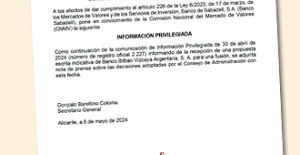Despite the economic crisis, the shortage of staff is becoming an increasing problem in Germany. With more than 1.9 million vacancies, a historic record level has been reached. Federal Labor Minister Hubertus Heil (SPD) also wants to close the gap through more immigration. He has now submitted a key issues paper on the planned reform of the Skilled Immigration Act to the departmental vote.
Heil is striving to make things easier for migrant workers from non-EU countries and is not just targeting skilled workers. Well-trained employees such as nurses and IT specialists have long been missing. Rather, bottlenecks are reported across all sectors and across all qualification levels.
The coalition is paving the way "to attract bright minds and helping hands for our job market," emphasizes Heil. The Skilled Immigration Act sets the right course for the future.
The key issues paper stipulates that labor migration should be based on three pillars in the future: the skilled workers pillar, the experience pillar and the potential pillar. The most important ways for qualified migrant workers are still the EU Blue Card for university graduates and the national residence permit for skilled workers with a German degree or a degree recognized in Germany (skilled worker pillar).
As a relief, however, it should in future be allowed for a skilled worker to carry out any qualified employment. A mechanic should therefore also be able to work as a logistician.
Heil's cornerstones provide considerable simplifications for workers who have at least two years of professional experience and a professional qualification that is state-recognized in their country of origin. As part of the so-called experience pillar, it should be easier for them to obtain a work permit in Germany.
The hurdles will be lowered even further for the particularly sought-after IT workers, for whom special regulations have already applied in this country. If they were previously allowed to come to Germany without a recognized professional qualification, there will no longer be any salary thresholds in future.
Knowledge of Germany will no longer be a requirement for computer experts from non-EU countries. For other experienced employees, only the salary thresholds are lowered.
The idea of the “opportunity card” is completely new, with which Heil wants to create another new migration path (pillar of potential) that had already been announced in the coalition agreement. This is intended to allow immigrants who do not yet have an employment contract to come to Germany if they meet certain criteria. You need a foreign degree, professional experience, language skills or at least a previous stay in Germany.
In addition to recruiting skilled workers, Heil's plans also provide for easier migration routes for workers without special professional knowledge. The package "also includes temporary or permanent immigration for jobs that do not require academic or professional qualifications," says the key issues paper. Appropriate quotas for third-country nationals are to be set for the local labor market and unbureaucratic procedures are to be made possible.
For example, staff shortages at the airports, which had caused enormous problems nationwide this summer, could be closed at short notice in this way. Appropriate measures by the traffic light coalition had already been announced this spring, but failed due to bureaucratic and legal pitfalls. In the end, only very few candidates came from Turkey.
In addition, the coalition would like to keep the so-called Western Balkans regulation permanently. Since 2016, countries such as Albania, Kosovo and Serbia have had special regulations for migrant workers. According to this, anyone who can show a concrete job offer may come from these states. Neither a minimum income nor qualifications or knowledge of German are required. The regulation was originally supposed to expire in 2020, but has been extended several times.
The plans of the Federal Ministry of Labor are welcomed in the construction industry, which is suffering from a serious shortage of staff. "The cornerstones presented by Federal Minister Heil for the reform of the Skilled Immigration Act go in the right direction," says Felix Pakleppa, General Manager of the Central Association of the German Construction Industry (ZDB). Because immigration must also be made easier for experienced workers without formal qualifications. For this target group, immigration to Germany should be possible without major bureaucratic hurdles.
The planned Western Balkans regulation is also correct. "This means planning security both for the employees who like to come to Germany from the Balkan states such as Bosnia-Herzegovina or Kosovo to work, and for our entrepreneurs," emphasizes the ZDB boss. "If the embassy in Sarajevo now issues the visas for these people more quickly, it would help our industry a lot."
The migration expert at the Institute for Labor Market and Occupational Research (IAB), Herbert Brücker, sees some good approaches in Heil's key issues paper: "Something is moving in the right direction. But it is doubtful whether this will increase the immigration of skilled workers to the necessary extent.”
Many regulations for the immigration of skilled workers would be relaxed. In order to develop the necessary striking effect abroad, to attract more migrant workers to Germany, the new regulations are too complicated. There is a risk that the new regulations with many different immigration routes will not be understood abroad. Then the Federal Republic will continue to be too unattractive for the coveted forces.
However, the economist sees an important step in the new opportunity for qualified migrant workers with professional experience to be able to come without the formal recognition of their professional qualifications by the local authorities. The lowering of the salary limits for the EU Blue Card is also correct. After all, making the Western Balkans regulation permanent is a good approach.
The workers who have immigrated from this region so far have integrated extremely well into the local labor market. Unemployment in this group is even lower than the average for the entire population.
The IAB economist emphasizes that such legal ways of immigrating, even for those with fewer qualifications, are urgently needed in view of the labor shortage. "Anyone who immigrates to Germany as a migrant worker finds it much easier to gain a foothold here than people who come as asylum seekers."
"Everything on shares" is the daily stock exchange shot from the WELT business editorial team. Every morning from 7 a.m. with the financial journalists from WELT. For stock market experts and beginners. Subscribe to the podcast on Spotify, Apple Podcast, Amazon Music and Deezer. Or directly via RSS feed.

 Sabadell rejects the merger with BBVA and will fight to remain alone
Sabadell rejects the merger with BBVA and will fight to remain alone In Germany, the far left wants to cap the price of “doner kebabs”
In Germany, the far left wants to cap the price of “doner kebabs” Israel-Hamas war: Gaza between hope of truce and fear of Israeli offensive in the South
Israel-Hamas war: Gaza between hope of truce and fear of Israeli offensive in the South “Mom, Dad, please don’t die”: in the United States, a nine-year-old child saves the lives of his parents injured in a tornado
“Mom, Dad, please don’t die”: in the United States, a nine-year-old child saves the lives of his parents injured in a tornado A baby whose mother smoked during pregnancy will age more quickly
A baby whose mother smoked during pregnancy will age more quickly The euro zone economy grows in April at its best pace in almost a year but inflationary pressure increases
The euro zone economy grows in April at its best pace in almost a year but inflationary pressure increases Children born thanks to PMA do not have more cancers than others
Children born thanks to PMA do not have more cancers than others Breast cancer: less than one in two French women follow screening recommendations
Breast cancer: less than one in two French women follow screening recommendations “House of the Dragon”, “Succession”… Max, the new streaming platform from HBO and Discovery, launched in France on June 11
“House of the Dragon”, “Succession”… Max, the new streaming platform from HBO and Discovery, launched in France on June 11 The A13 motorway will finally reopen this Friday, in one direction only
The A13 motorway will finally reopen this Friday, in one direction only TNT commission of inquiry: tensions between LFI deputies and Macronists before the vote on the report
TNT commission of inquiry: tensions between LFI deputies and Macronists before the vote on the report Apple unveils a new, more efficient iPad range
Apple unveils a new, more efficient iPad range The Gaza War invites itself to the 2024 Pulitzer Prizes
The Gaza War invites itself to the 2024 Pulitzer Prizes Judith Godrèche presents a short film on sexual violence in Cannes
Judith Godrèche presents a short film on sexual violence in Cannes Kevin Spacey: new trial in sight in London for the American actor, for sexual assault
Kevin Spacey: new trial in sight in London for the American actor, for sexual assault Taylor Swift fans make London pub Black Dog their new place of pilgrimage
Taylor Swift fans make London pub Black Dog their new place of pilgrimage Omoda 7, another Chinese car that could be manufactured in Spain
Omoda 7, another Chinese car that could be manufactured in Spain BYD chooses CA Auto Bank as financial partner in Spain
BYD chooses CA Auto Bank as financial partner in Spain Tesla and Baidu sign key agreement to boost development of autonomous driving
Tesla and Baidu sign key agreement to boost development of autonomous driving Skoda Kodiaq 2024: a 'beast' plug-in hybrid SUV
Skoda Kodiaq 2024: a 'beast' plug-in hybrid SUV The home mortgage firm rises 3.8% in February and the average interest moderates to 3.33%
The home mortgage firm rises 3.8% in February and the average interest moderates to 3.33% This is how housing prices have changed in Spain in the last decade
This is how housing prices have changed in Spain in the last decade The home mortgage firm drops 10% in January and interest soars to 3.46%
The home mortgage firm drops 10% in January and interest soars to 3.46% The jewel of the Rocío de Nagüeles urbanization: a dream villa in Marbella
The jewel of the Rocío de Nagüeles urbanization: a dream villa in Marbella Institutions: senators want to restore the accumulation of mandates and put an end to the automatic presence of ex-presidents on the Constitutional Council
Institutions: senators want to restore the accumulation of mandates and put an end to the automatic presence of ex-presidents on the Constitutional Council Europeans: David Lisnard expresses his “essential and vital” support for François-Xavier Bellamy
Europeans: David Lisnard expresses his “essential and vital” support for François-Xavier Bellamy Facing Jordan Bardella, the popularity match turns to Gabriel Attal’s advantage
Facing Jordan Bardella, the popularity match turns to Gabriel Attal’s advantage Europeans: a senior official on the National Rally list
Europeans: a senior official on the National Rally list These French cities that will boycott the World Cup in Qatar
These French cities that will boycott the World Cup in Qatar PSG-Dortmund: a gigantic tifo on three stands to welcome the players
PSG-Dortmund: a gigantic tifo on three stands to welcome the players PSG-Dortmund: in video, Donnarumma’s decisive save which saves the Parisians
PSG-Dortmund: in video, Donnarumma’s decisive save which saves the Parisians Pro D2: Biarritz goes before the regulatory authority and reveals partners
Pro D2: Biarritz goes before the regulatory authority and reveals partners Champions League: without madness then cursed, PSG lets its dreams of the final fly away
Champions League: without madness then cursed, PSG lets its dreams of the final fly away


















